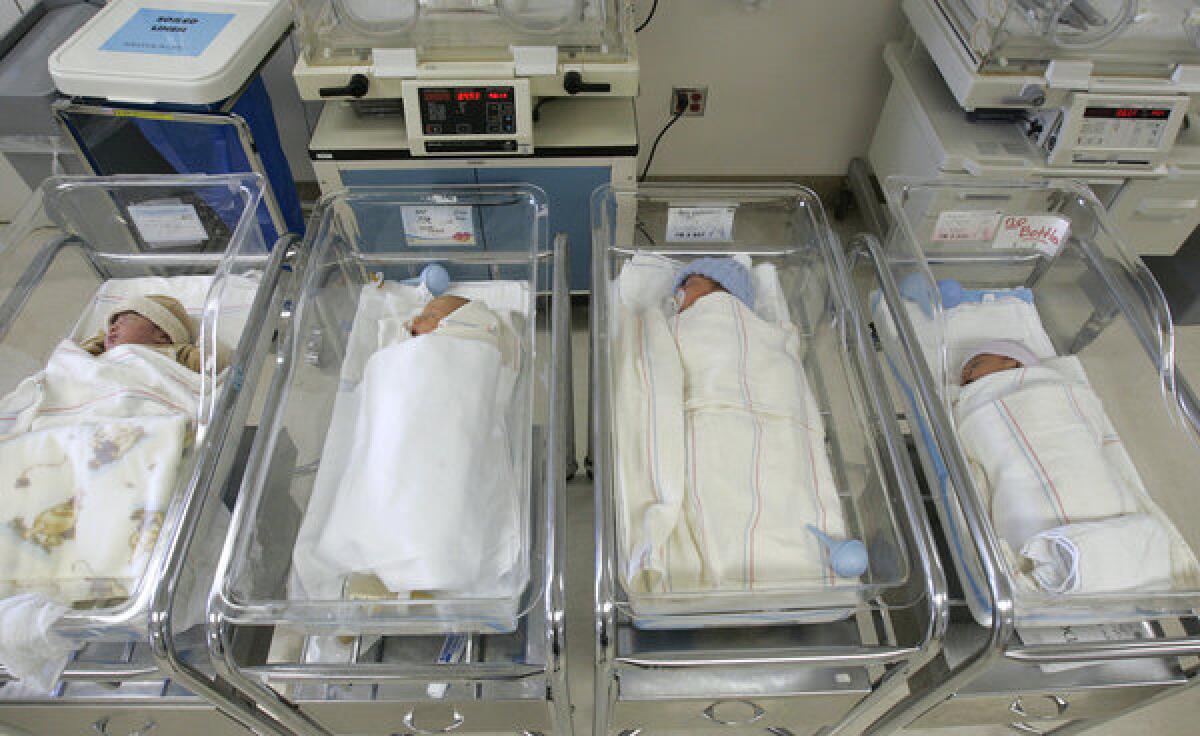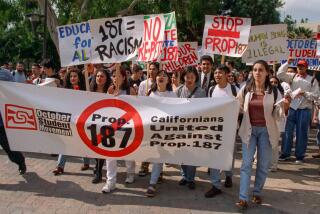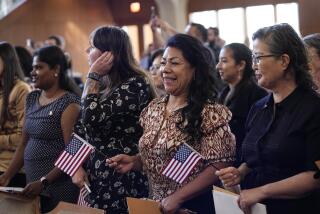Census Bureau: Minority births outnumbered whites for first time

The United States has reached a historic tipping point -- with Latino, Asian, mixed race and African American births constituting a majority of births for the first time, theU.S. Census Bureau reported Thursday.
Minorities made up about 2 million, or 50.4%, of the births in the 12-month period ending July 2011, enough to create the milestone. The latest figure was up from 49.5% in the 2010 census.
The racial and ethnic shift was an expected, but still important, turning point for the nation, whose economic and political elites remain essentially white and primarily male. The new numbers indicate that the upcoming generations will be more diverse and could have an increasingly broader view of issues -- such as immigration reform -- that are based on race and ethnicity. There will also be cultural changes -- as there have been in recent years, with foods, music and ideas from Latino cultures, for example, spreading into the mainstream.
The new numbers also raise some interesting questions about, and challenges for, the upcoming generations. They’ll have to deal with non-race-based issues such as the federal budget deficit and the social services needed for an aging population.
Thursday’s Census Bureau numbers show a continuing graying of America, as the nation’s median age rose slightly because of growth in the older-than-65 population, especially in the subset of those older than 85. With the overall number of children younger than 18 declining, and Americans living longer, fewer people will have to fund more benefits -- or find some other political solution. Race and ethnicity could also play a role in the generational cleavage since the older group will be largely white.
According to the latest Census Bureau data, there were 114 million minorities in 2011, or 36.6% of the U.S. population. In 2010, it stood at 36.1%
Five states, including the District of Columbia, were considered “majority-minority” – those with a population greater than 50% black, Latino, Asian or mixed race. The majority-minority states or equivalents in 2011 were: Hawaii, 77.1%; the District of Columbia, 64.7%; California, 60.3%; New Mexico, 59.8%; and Texas, 55.2%. No other state had a minority population greater than 46.4%.
On the more local measure of counties, 11%, or 348, were majority-minority.
The most populous group in the nation remained Latinos at 52 million in 2011; it also remained the fastest-growing group. Latino’s were 16.7% of the U.S. population in 2011, up from 16.3% in 2010.
California had the largest Latino population of any state with 14.4 million on July 1, 2011, and Los Angeles had the largest Latino county population at 4.8 million. New Mexico had the highest Latino percentage at 46.7%, while Starr County, on the Mexican border in Texas, had the highest share of Latinos at 95.6%.
African Americans were the second-largest minority group in the United States, at 43.9 million in 2011, up 1.6% from 2010. New York had the largest African American population at 3.7 million, while the District of Columbia had the highest percentage of blacks at 52.2%, followed by Mississippi, at 38%.
Asians, who numbered 18.2 million nationally in 2011, were the second fastest-growing minority group, up by 3% since 2010.
ALSO:
New law would target cross-border smuggling tunnels
A thanks for active military and families -- free U.S. park passes
Obama awards Vietnam-era rifleman a posthumous Medal of Honor
More to Read
Sign up for Essential California
The most important California stories and recommendations in your inbox every morning.
You may occasionally receive promotional content from the Los Angeles Times.











